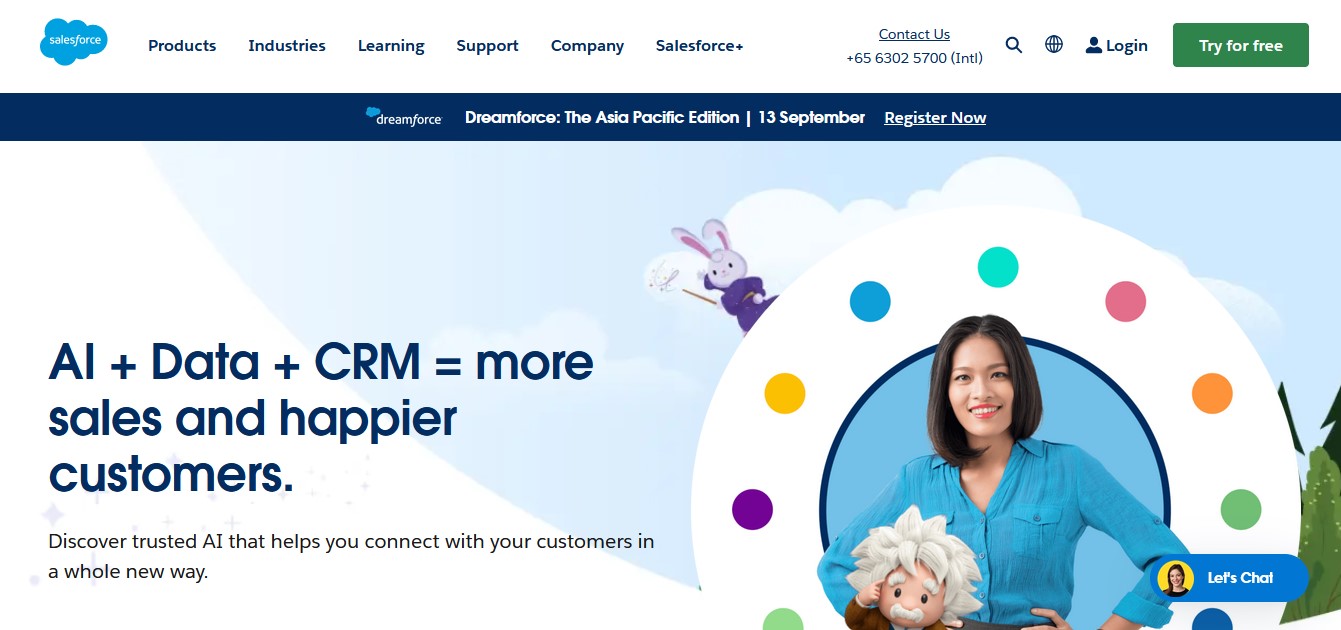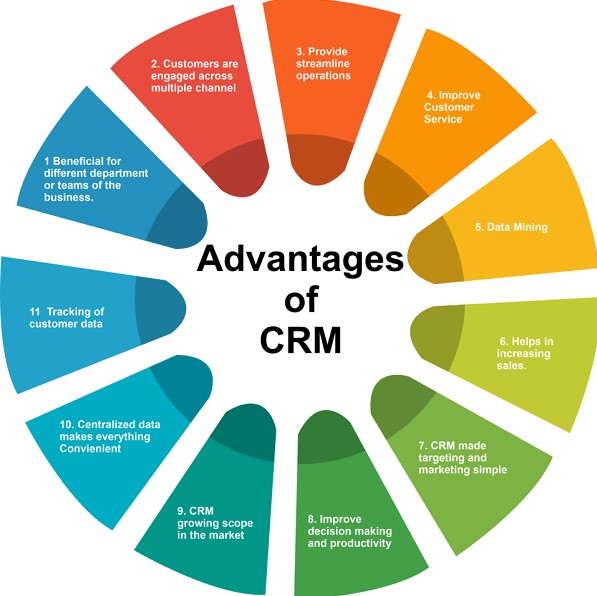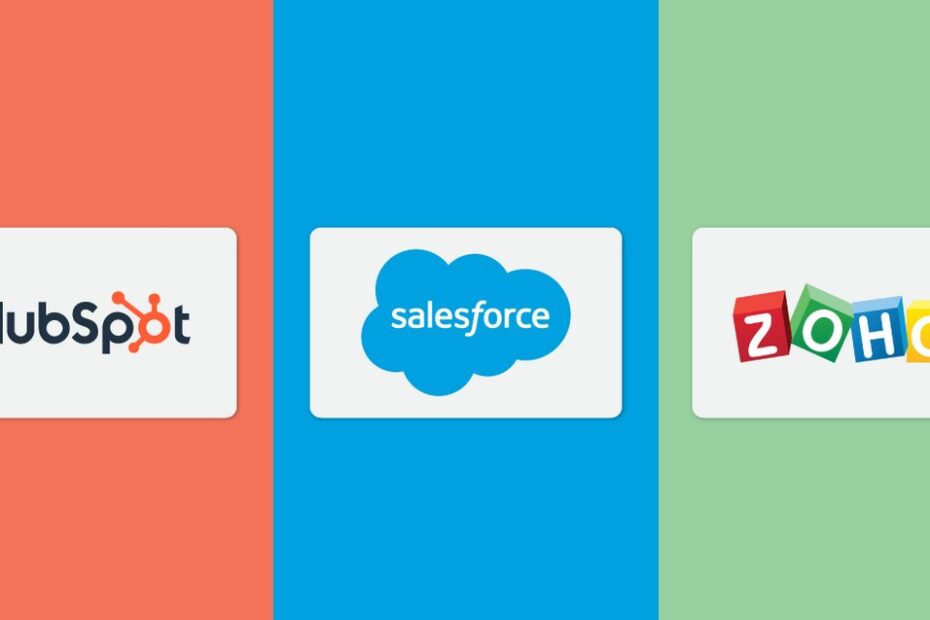Running a small business comes with its own set of challenges, but managing clients shouldn’t be one of them. As the backbone of any successful enterprise, maintaining strong relationships with customers is imperative for growth. That’s where client management software steps in, offering streamlined solutions to keep track of interactions, organize data, and enhance communication. With an abundance of options available on the market today, finding the best client management software for your small business can seem overwhelming. In this article, we’ll explore some top contenders that not only meet the needs of small businesses but also deliver exceptional value and efficiency. Whether you’re a solopreneur or have a small team to support your operations, these software solutions will help take your client management to new heights.
The importance of client management software
Client management software is crucial for businesses of all sizes and industries. It helps streamline and automate various aspects of client management, ultimately improving efficiency and productivity. One key benefit of using client management software is the ability to centralize all client information in one place. This allows businesses to easily access and update client data, track interactions, and monitor progress on projects or tasks.
Moreover, client management software enables businesses to provide better customer service. With a comprehensive view of each client’s history and preferences, businesses can personalize their interactions and tailor their offerings accordingly. This not only enhances the overall customer experience but also fosters stronger relationships with clients.
Additionally, client management software often includes features such as task management, communication tools, and reporting capabilities. These functionalities help teams stay organized, collaborate effectively, and analyze data to make informed decisions. In this fast-paced business environment, having a reliable client management software is essential for staying competitive and delivering exceptional service to clients.
Key features to look for in client management software
When looking for client management software, there are several key features that you should consider. First and foremost, it is important to ensure that the software has a user-friendly interface. This will make it easier for you and your team to navigate and use the software effectively. Additionally, the software should have robust contact management capabilities, allowing you to easily store and access client information such as contact details, communication history, and any relevant documents.
Another important feature to look for is task management functionality. This will help you stay organized and ensure that all client-related tasks are completed in a timely manner. The software should allow you to assign tasks to team members, set deadlines, and track progress. Additionally, integration with other tools such as email clients or project management software can further streamline your workflow.
Overall, the key features to look for in client management software include a user-friendly interface, robust contact management capabilities, and task management functionality. By choosing a software that meets these criteria, you can effectively manage your clients and improve productivity within your organization.
Top 5 client management software options for small businesses
There are several excellent client management software options available for small businesses. Here are five top choices:
1. Salesforce: Salesforce is a popular and comprehensive client management software that offers a range of features such as contact management, lead tracking, and sales forecasting. It is highly customizable and can be tailored to fit the specific needs of your small business.

2. HubSpot CRM: HubSpot CRM is a user-friendly option that integrates seamlessly with other HubSpot tools. It provides features like contact management, deal tracking, and email tracking. HubSpot CRM also offers a free version with limited features, making it an affordable choice for small businesses.
3. Zoho CRM: Zoho CRM is another great option for small businesses as it offers a wide range of features at an affordable price point. It includes contact management, lead tracking, and sales automation tools. Zoho CRM also integrates well with other Zoho applications, providing a complete suite of business solutions.
4. Pipedrive: Pipedrive is known for its simplicity and ease of use, making it ideal for small businesses without extensive technical expertise. It offers features like contact management, deal tracking, and sales reporting. Pipedrive also provides integrations with popular third-party apps like Google Workspace and Slack.
5. Insightly: Insightly is a user-friendly client management software that caters specifically to small businesses. It offers features such as contact management, project management, and email integration.
Comparison of pricing and plans for each option
When it comes to selecting the best client management software for your small business, pricing and plans are important factors to consider. While each option offers distinct features tailored to different business needs, it is essential to evaluate which one aligns with your budget and long-term objectives.
Option A offers a basic plan starting at $9 per month, making it an affordable choice for startup businesses. This plan includes essential features such as client contact management and task tracking. However, if you require more advanced capabilities like automated workflows or team collaboration, you will need to upgrade to their premium plan, which starts at $20 per month.
On the other hand, Option B provides an all-inclusive plan that encompasses a robust suite of tools from client communication and project management to invoicing and analytics for just $25 per month. Although this may seem pricier compared to Option A’s premium plan, the value proposition lies in the comprehensive features bundle that can help streamline your business operations effectively.
In conclusion, while pricing certainly plays a significant role in choosing the right client management software for small businesses, it is essential not only to focus on cost but also consider the specific needs of your company. By comparing pricing and plans in conjunction with evaluating features required for optimal productivity and performance improvement, you can make an informed decision that will ultimately benefit your business in the long run.
Pros and cons of each client management software
When it comes to client management software, there are numerous options available in the market. Each solution offers unique features and benefits that cater to specific business needs. However, when making a decision, it is essential to consider the pros and cons of each software before investing your time and money.

One popular client management software is Salesforce. Pros include its vast array of features, including contact organization, sales tracking, and marketing automation. Additionally, Salesforce’s cloud-based platform allows for seamless data access from anywhere at any time. However, one drawback could be its complex user interface that may require extensive training for new users.
Another option worth considering is HubSpot CRM. The biggest advantage of this software is that it is entirely free with unlimited users. It also includes robust analytics and reporting tools that can help businesses gain valuable insights into their customer base. On the downside, HubSpot’s CRM lacks some advanced features found in other solutions like personalized email templates or LinkedIn integration.
In conclusion, choosing a client management software requires careful consideration due to the various pros and cons associated with each option. Understanding your specific business needs will ultimately determine which software will best support your goals in managing clients effectively and efficiently.
How to choose the best client management software for your business
When choosing the best client management software for your business, there are several factors to consider. First and foremost, you need to assess your specific needs and requirements. Consider the size of your business, the number of clients you have, and the complexity of your client interactions. This will help you determine whether you need a basic CRM system or a more advanced client management software with additional features such as project management or invoicing capabilities.
Next, it’s important to consider the user-friendliness and ease of implementation of the software. Look for a solution that offers a simple and intuitive interface, as well as easy integration with other tools or systems you may already be using in your business. Additionally, consider whether cloud-based or on-premise software would be more suitable for your business needs.
Lastly, don’t forget to take into account the reputation and customer reviews of different client management software providers. Look for providers with a track record of delivering reliable and efficient solutions, and read reviews from other businesses in similar industries to get an idea of their experiences. By carefully considering these factors, you’ll be able to choose the best client management software that aligns with your business goals and objectives.
Why client management software is essential
Client management software is essential for businesses of all sizes because it helps streamline and automate the process of managing client relationships. With this software, businesses can easily track and organize client information, such as contact details, purchase history, and communication history. This allows businesses to have a comprehensive view of each client, which in turn enables them to provide personalized and efficient service.
Furthermore, client management software allows businesses to improve their overall efficiency by automating repetitive tasks. For example, the software can automatically send out reminders for upcoming appointments or follow-ups, saving time and ensuring that no important tasks are overlooked. Additionally, these systems often include features that allow businesses to track sales leads and opportunities, helping them identify potential new clients and track their progress through the sales pipeline.
In summary, client management software is essential because it helps businesses effectively manage their client relationships, improve efficiency, and ultimately drive growth. By centralizing client information and automating key processes, businesses can provide better service to their clients while also optimizing their own operations.
Benefits of using client management software
Client management software offers several benefits for businesses. First and foremost, it helps streamline the client management process by centralizing all client information in one place. This makes it easier to access and update client data, ensuring that all team members have the most up-to-date information at their fingertips. Additionally, client management software often includes features such as contact management, task tracking, and communication tools, which can greatly improve efficiency and collaboration within a company.
Another major benefit of using client management software is the ability to track and analyze client data. By collecting information on client interactions, purchase history, and preferences, businesses can gain valuable insights into their clients’ behaviors and needs. This allows them to tailor their marketing efforts and customer service strategies accordingly, ultimately leading to improved customer satisfaction and increased sales. Overall, implementing client management software can greatly enhance a business’s ability to effectively manage its clients and drive growth.
Top features to look for in client management software
When looking for client management software, there are several key features to consider. Firstly, ease of use is crucial. You want a software that is intuitive and user-friendly, allowing you to easily navigate through the system and access the information you need. This will ensure that your team can quickly adapt to the software and maximize their productivity.
Secondly, integration capabilities are important. Look for a software that seamlessly integrates with other tools and platforms your business uses, such as email clients or project management systems. This will enable smooth data transfer and eliminate the need for manual data entry, saving you time and reducing errors.
Lastly, security should be a top priority. Ensure that the software has robust security measures in place to protect sensitive client information. Features like encryption, access controls, and regular data backups are essential to safeguard your clients’ data from potential threats.
By considering these top features – ease of use, integration capabilities, and security – you can choose a client management software that meets your business needs effectively.
Comparison of the best client management software options for small businesses
When it comes to client management software options for small businesses, there are several top contenders worth considering. One popular choice is Salesforce, which offers a comprehensive suite of tools for managing customer relationships, tracking sales leads, and automating marketing campaigns. With its user-friendly interface and robust features, Salesforce is often praised for its scalability and customization options.
Another great option is HubSpot CRM, which provides a range of customer management tools that are specifically designed for small businesses. HubSpot CRM offers features such as contact management, email tracking, and lead scoring, all in an easy-to-use platform. Additionally, HubSpot CRM integrates seamlessly with other HubSpot products like their marketing automation software, making it a convenient choice for businesses looking to streamline their operations.
Ultimately, the best client management software option for your small business will depend on your specific needs and budget. It’s important to evaluate each option carefully and consider factors such as scalability, customization options, and integration capabilities before making a decision.
Case studies: How small businesses have benefited from using client management software
Client management software can be a game-changer for small businesses, providing them with the tools they need to streamline their operations and improve customer satisfaction. One example of a small business that has benefited from using client management software is a local boutique clothing store. By implementing this software, the store was able to keep track of customer preferences, purchase history, and contact information in one centralized database. This allowed them to personalize their marketing efforts and provide tailored recommendations to customers, resulting in increased sales and customer loyalty

Another small business that has seen significant benefits from client management software is a graphic design agency. Prior to using this software, the agency struggled with keeping track of project deadlines and communicating effectively with clients. However, after implementing client management software, they were able to easily manage projects, assign tasks to team members, and track progress in real-time. This helped them deliver projects on time and exceed client expectations, leading to increased client satisfaction and repeat business.
In conclusion, client management software can greatly benefit small businesses by improving efficiency, enhancing customer relationships, and ultimately driving growth. Whether it’s a retail store or a creative agency, implementing this type of software can provide valuable insights into customer behavior and allow businesses to better serve their clients’ needs.
Tips for choosing the right client management software for your business
When choosing the right client management software for your business, there are several factors to consider. First and foremost, you need to assess your specific needs and requirements. Determine what features and functionalities are essential for your business operations. This could include contact management, task tracking, document storage, or integration with other systems.
Another important consideration is scalability. As your business grows, you want a client management software that can accommodate that growth without causing disruptions or requiring costly upgrades. Look for software that offers flexibility and scalability options to ensure it can adapt to your changing needs.
Lastly, don’t forget about user experience. The software should be intuitive and easy to use for both you and your team members. A steep learning curve or complex interface can lead to inefficiencies and frustration. Consider conducting demos or trials of different software options to get a firsthand experience before making a decision.
The importance of investing in effective client management software.
Investing in effective client management software is crucial for businesses of all sizes. Such software can streamline and automate various aspects of client management, leading to improved efficiency, productivity, and customer satisfaction. With the right software in place, businesses can easily track and manage client interactions, keep important contact information organized, and provide personalized service.
One key benefit of investing in client management software is the ability to centralize all client data in one place. This allows businesses to have a holistic view of their clients’ preferences, needs, and history with the company. By having access to this information at their fingertips, employees can provide more personalized and tailored service to each client, leading to higher customer satisfaction and loyalty.
Additionally, effective client management software can automate routine tasks such as appointment scheduling, follow-up reminders, and email marketing campaigns. This not only saves time for employees but also ensures that no important deadlines or opportunities are missed. The automation features also allow businesses to stay engaged with clients on a regular basis without requiring excessive manual effort.
Overall, investing in effective client management software is essential for businesses looking to optimize their customer relationships. It helps streamline processes, improve productivity, enhance customer satisfaction, and ultimately drive business growth.
Conclusion
In conclusion, choosing the right client management software for your small business is crucial for streamlining processes and improving efficiency. With a plethora of options available in the market, it is essential to consider factors such as affordability, ease of use, and scalability before making a decision.
One important aspect to keep in mind is the integration capabilities that the software offers. Being able to connect seamlessly with other tools you use, such as project management or sales software, can save time and simplify workflows. Additionally, having mobile access capability ensures that you can stay updated on client information even when on-the-go.
Lastly, don’t underestimate the power of analytics and reporting features. Opting for a system that provides robust reporting capabilities enables you to gain valuable insights into client behavior and preferences. This data can help inform your business strategies and improve customer satisfaction.
All in all, investing in a reliable client management software will not only save you time but also enhance your business’s overall productivity and success. Take the time to evaluate your specific needs and choose a solution that aligns with your goals and objectives.

